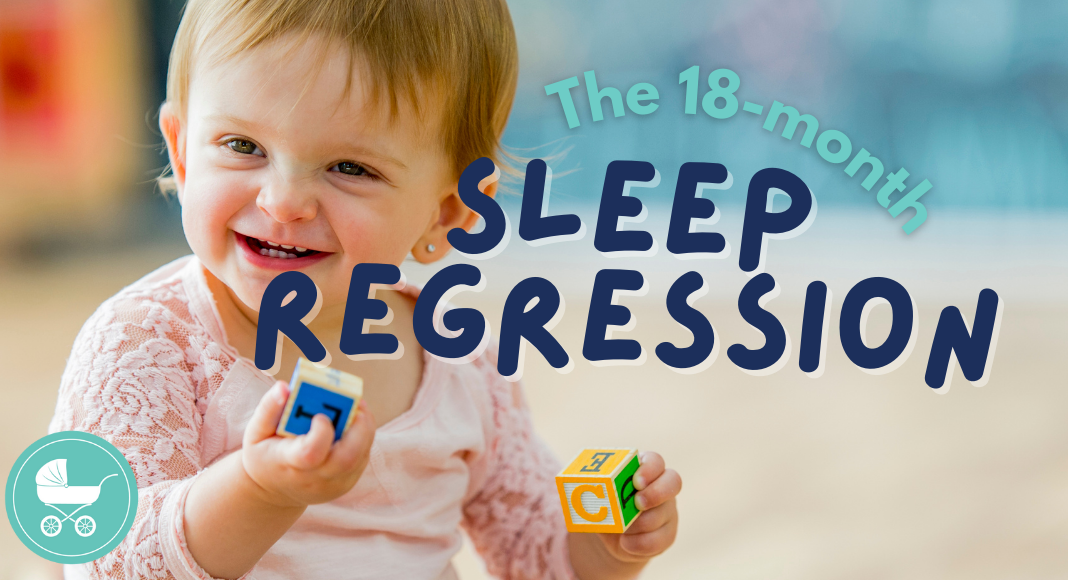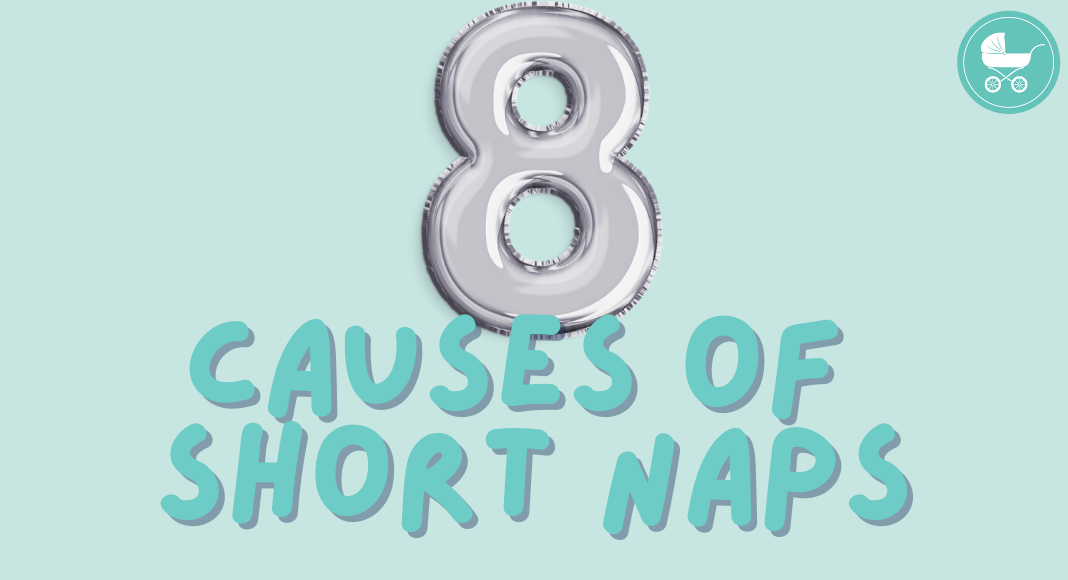
August 14, 2022
In our third post on sleep regressions, we’re going to talk about the 18-month sleep regression. You might consider this one to be the most frustrating because you now have the added variable of discipline to contend with. Now a toddler, your little one might start displaying some independence and defiance at bedtime, which can […]
The 18-Month Sleep Regression
In our third post on sleep regressions, we’re going to talk about the 18-month sleep regression. You might consider this one to be the most frustrating because you now have the added variable of discipline to contend with. Now a toddler, your little one might start displaying some independence and defiance at bedtime, which can be challenging!
What:
Like all sleep regressions, the 18-month sleep regression occurs when a once peacefully sleeping toddler suddenly resists bedtime and/or naps. It can also manifest itself in multiple night wakings or short naps.
When:
As the title suggests, the 18-month sleep regression usually occurs around 18 months, but it can also occur a little earlier or a little later depending on the child. Most sleep regressions last about 2-6 weeks, but it’s important to recognize when a sleep regression ends and sleep habits begin. If your toddler has never really slept through the night or if the sleeplessness has lasted longer than 6 weeks, give us a call!
Why:
There are several possible reasons for this regression, including, but not limited to:
Teething – Around 18 months, most toddlers are getting their canine teeth.
Separation Anxiety – Yep. It’s back! Separation anxiety often rears its ugly head again around this time.
Independence – Your 18 month old can do a lot more for herself than she could just a few months ago, so she might start to insist on freedom when it comes to bedtime, too.
What to Do:
As we have suggested in earlier posts, it’s important to try hard not to encourage new sleep habits or bring back old ones. While it might be tempting to hold your toddler to sleep or bring back the pacifier, it can make the regression last much longer.
If teething is a culprit, consider pain relief medications at bedtime (under the direction of your child’s pediatrician).
If you suspect separation anxiety to be the culprit, do your best to spend as much quality time with your child during her waking hours. You might also consider introducing a security object – such as a blanket or stuffed animal – to the bedtime routine. And, speaking of bedtime routines, it might be a good idea to extend the routine a little to help your child feel extra secure around bedtime. For more tips on dealing with separation anxiety, check out this blog post.
As we mentioned earlier, many times the 18-month sleep regression is caused by a healthy streak of independence. Now that your toddler is old enough to do many things on his own, he might think that he can decide when to go to bed! To help, consider setting limits and enforcing discipline during the waking hours. (We love the book 1,2,3 Magic.) Also, it’s important to give your toddler choices during bedtime. Let him decide what pajamas to wear or what stories to read. This will help satisfy his need for independence while also enforcing his bedtime routine.
If all else fails, it might be time to introduce some sleep training techniques. To find the best technique for your family, check out our blog posts on sleep training methods. And, if you’re still having issues after a few weeks, feel free to schedule a free consultation! We can develop a personalized sleep plan that will get your whole family sleeping in no time!
Get instant access to our free sleep class for children from newborn to 5 years old. You will learn how to get your child to sleep independently -- and all through the night!
Get Your Child To Sleep All Night Long in as Little as 7 Days!
join the free class
THE CLASS


